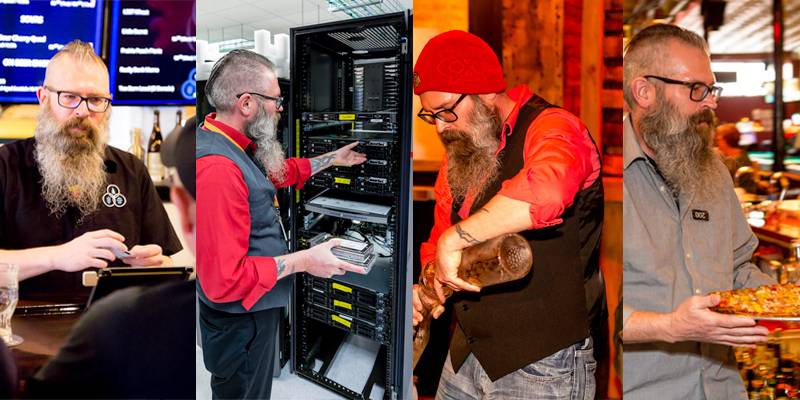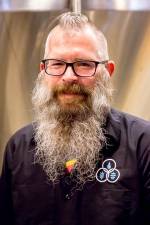 Meet Virgil Grider. You might recognize him. Not only is he very easily identified in a crowd by his sweet beard (and sometimes mohawk) but he also works four jobs in C-U. Take a look at these photographs, shot by Smile Politely photographer Scott Wells, and read Grider’s thoughts about how his jobs influence his daily grind.
Meet Virgil Grider. You might recognize him. Not only is he very easily identified in a crowd by his sweet beard (and sometimes mohawk) but he also works four jobs in C-U. Take a look at these photographs, shot by Smile Politely photographer Scott Wells, and read Grider’s thoughts about how his jobs influence his daily grind.
Smile Politely: Where do you work and what are your positions?
Virgil Grider: For the day job I work at Carle, as a Systems Administrator, basically an upper-end computer guy. There I maintain Windows Servers, print queues, physical servers, virtual servers, and disaster recovery.
On Monday nights I teach a beer class at Barrelhouse 34.
On Tuesdays, I work at Jupiter’s downtown.
Every Thursday, and Friday and Saturday of alternate weeks, I work at Triptych Brewing in Savoy, serving beer. On Thursdays, we usually have Dragonfire Pizza food truck out front and have a beer going through the Randall, which is a device that infuses the beer with whatever we put into it, like cacao nibs, or lime zest, or Jolly Ranchers.
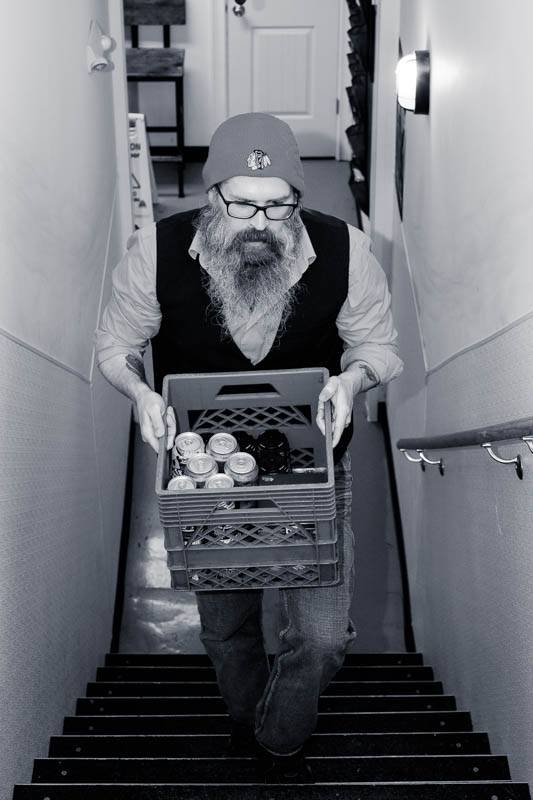
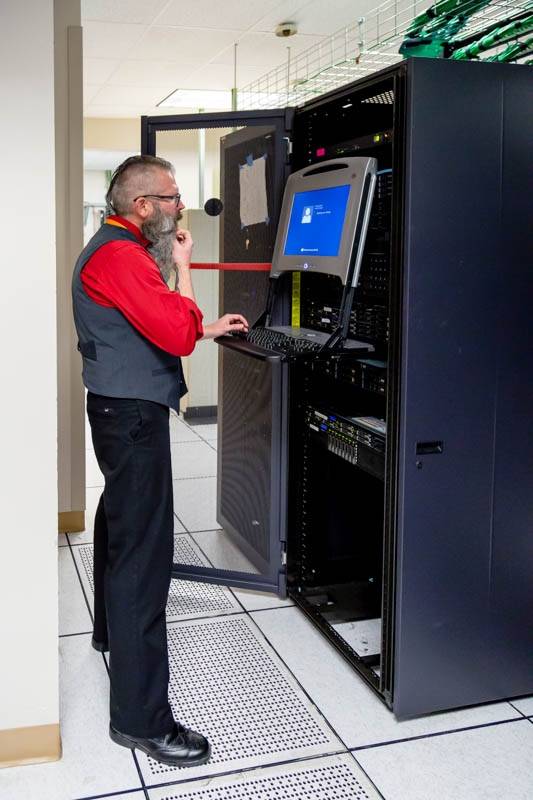
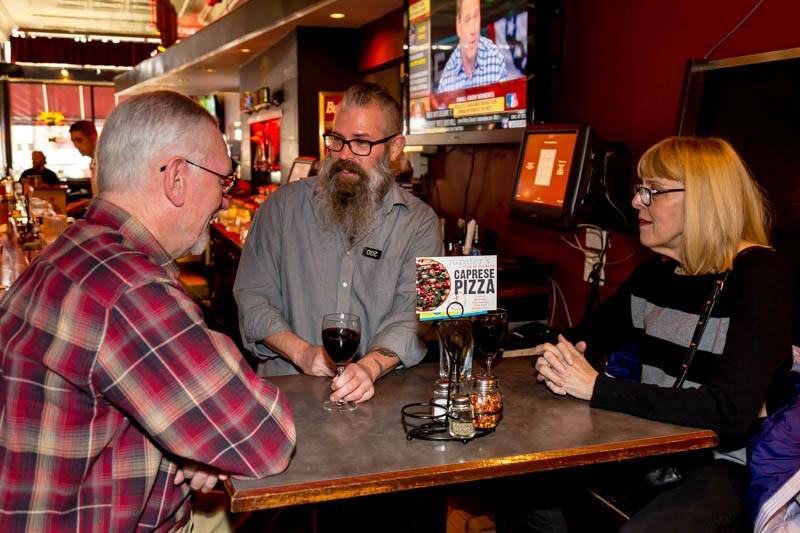
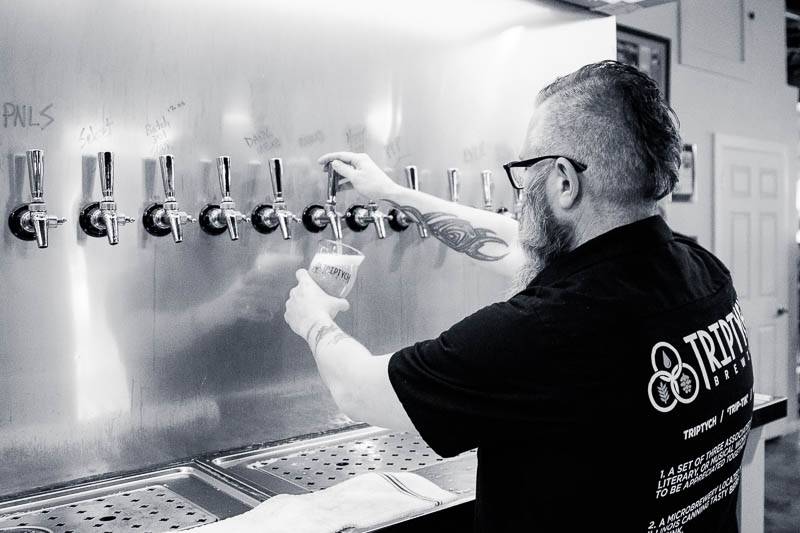
SP: There are many reasons people work: money, satisfaction, experience. Why do you work these jobs? Why all four?
Grider: I tend to say the day job pays the bills, the rest is just spending money. I don’t really work for the money, but that doesn’t mean I don’t like having it. I mostly work because I’m restless. I can’t picture myself as a person who goes home after the 8-5, eats dinner then sits there watching television until 10, then goes to bed. There is nothing wrong with that, but it isn’t the life for me. I like adventures. I’ve had many, and working all these places also gives me an opportunity to make and tell stories.
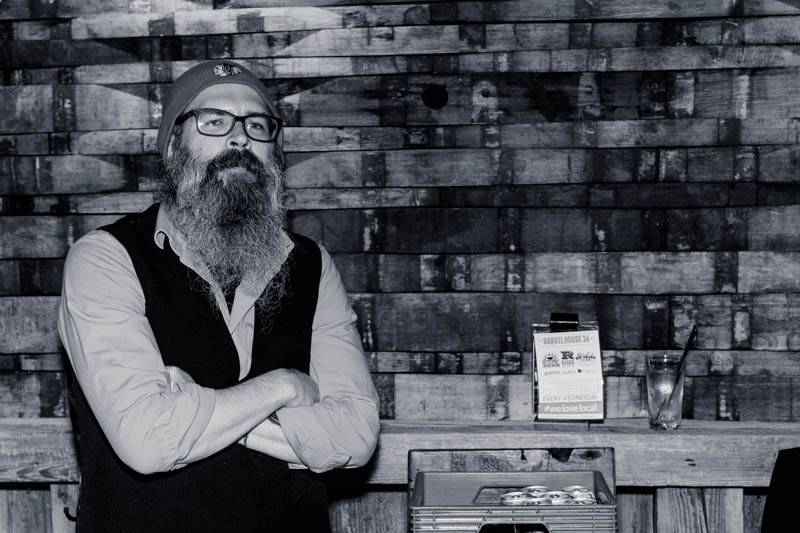
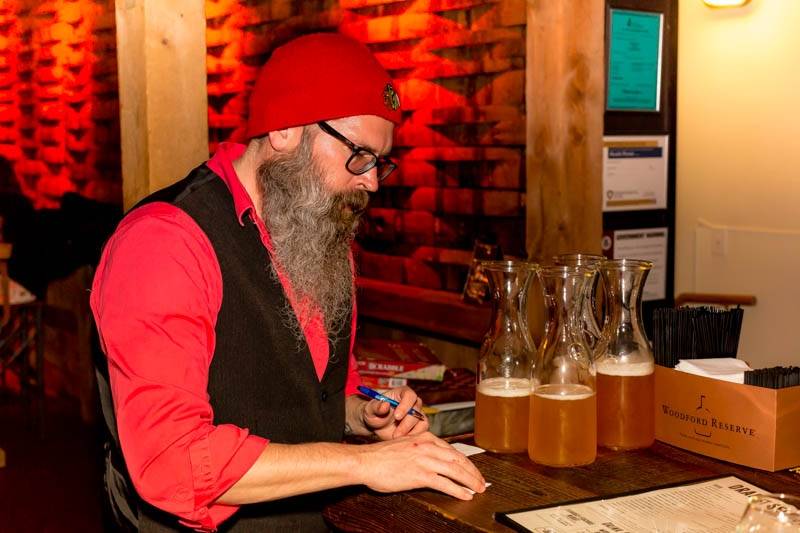
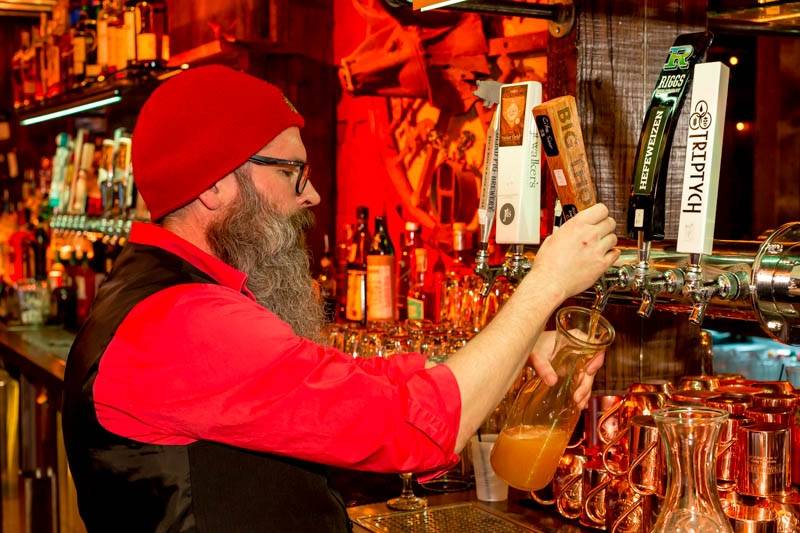
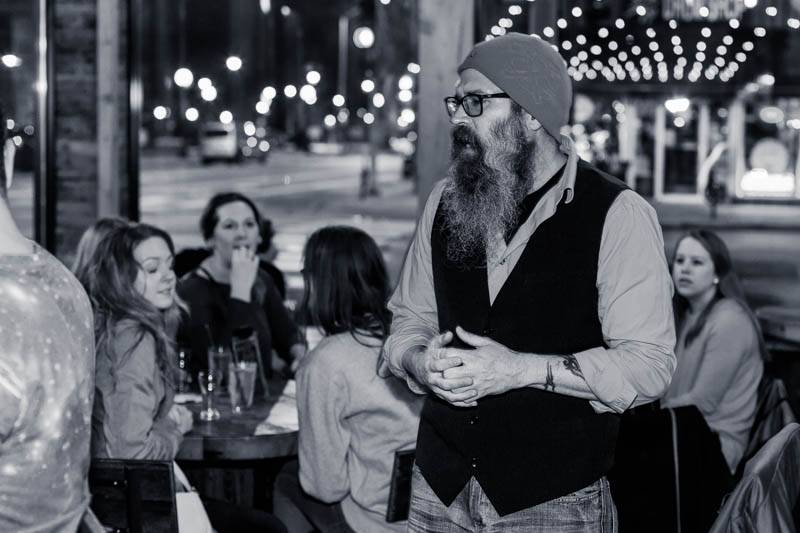
SP: Growing up, what did you think you would do for work as an adult? Are there jobs that you’d like to do in the future? Do you have a “dream job?”
Grider: Let’s say, I’m not too young, but then, I don’t feel old, I’m very experienced. With that said, the first time I sat down behind what could be considered a modern computer, I thought to myself, somehow I will make this my career. This would have been in 1990, so a very early IBM 8086.
Then, I joined the army as a journalist and was stationed at Fort Richardson, Alaska, and we had a similar computer up there, which was just used for word processing. One day, we received a couple of new computers that would have been 386’s, and I asked: “Sergeant, when are you going to set up my computer?” He put it together a couple of days later. Then I went out and got my own home PC in 1994. When the next shipment arrived, I was the one putting them together.
I moved to Fort Meade, Maryland, and was tasked with making a poster. The graphics files we were using didn’t work well on a machine with 16 meg (not gig) of RAM, and Windows 95 couldn’t use more than 16, so my boss gave me 64 meg of ram and changed my operating system to NT 4 server. One day, I overheard my buddy say “If Grider knew how much power he had on that machine, we’d all be out of a job”. So, I learned how to use the systems admin tools. They were nice enough to send me to Windows server training, and I got out and wound up back here. (I grew up in a small town 25 miles north of Bloomington, called Chenoa. But as a kid lived in Urbana from 1-4, then was in Green Bay from 4-12, spent some time in Georgia my senior year of high school. Then joined the army.)
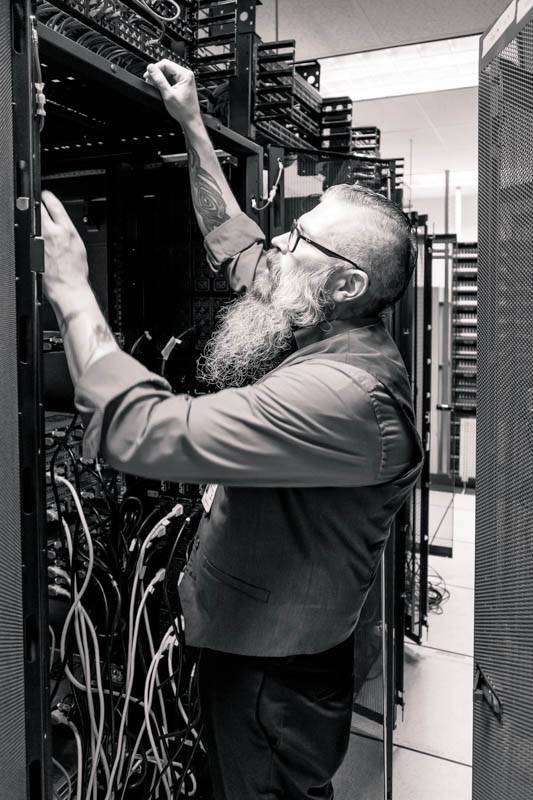
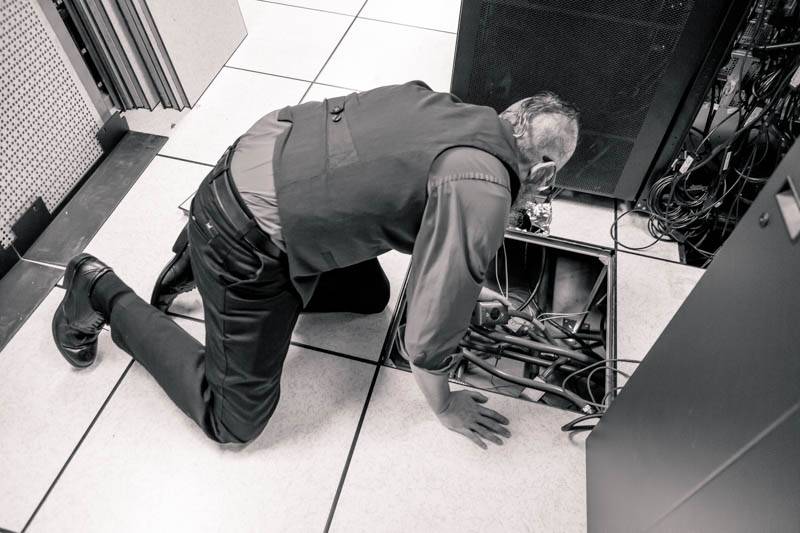
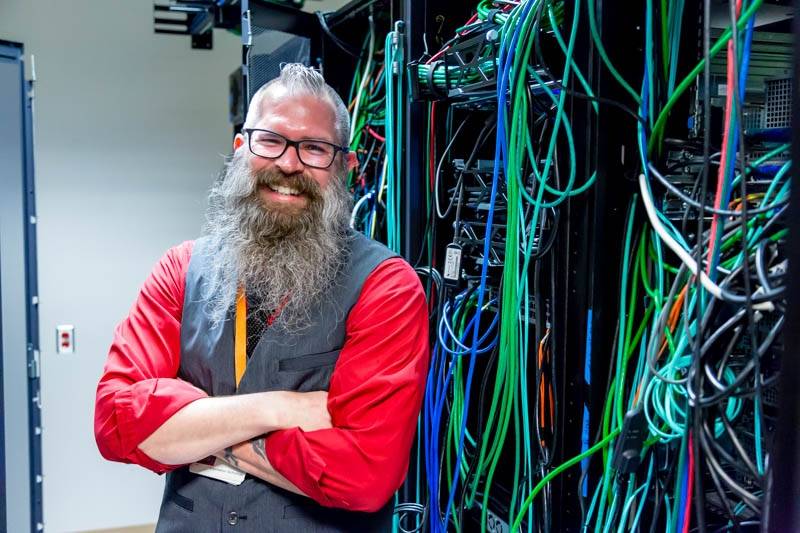
After I moved into town, I started frequenting bars and was going to Billy Barooz quite often. When you go to a bar, you will often see people just watching the bartender. They always ask “What’s that?” or “What are you making? That sounds good, I’ll have that.” I wanted that. So I asked if they would make me a bartender, but they said no.
Then I started drinking craft beer. I really enjoyed craft beer. I didn’t quite fully understand everything that I was drinking, I was just at the “do I like it or not” phase, and wanted to learn more. Andy Borbely was the general manager at Crane Alley at the time, and on Wednesday nights he was having a beer class. So I started to go, to learn about and talk about the things I was tasting in those beers. I started a beer blog and was doing a lot of writing about beer back then, and that has really helped with my knowledge and ability to speak about beer. In 2007, I drank 1200 different beers and was selected as the Beer Drinker of the Year, Rookie of the Year, by Wynkoop Brewery in Colorado.
Several years ago, the GM of Radio Maria was moving to New York. He asked me if I would take over the beer program there. I said I would on one condition, that he makes me a bartender. He agreed to it. I started ordering the beer, and was a barback, and bartended every other Sunday. Then somehow got pretty good at it, and was the main bartender on Saturday nights during Salsa.
When Triptych opened, it was just the owners and some friends who were bartending. I told them, “When you need professional help, let me know”. They laughed and said they could handle it. About a week later, they asked when I could start. Jupiter’s had a need for another body behind the bar on Tuesdays, so they asked me. When Barrelhouse opened, I realized that place would be able to change the perception of what the best beer bar was in town, so I asked to work there and moved Beer Class over there.
So basically, the two things I’ve wanted to do, be a computer guy and be a bartender, I’ve somehow managed to get myself doing both.
SP: There are common problems among jobs. I am wondering, do your jobs ever overlap, in your mind, and perhaps you are able to solve a problem in one job because of something you learned at another job?
Grider: If you time it right, you can probably find me in a parking lot in my underwear changing from one set of clothes to another. There are sometimes three pairs of work pants in the back seat of my car.
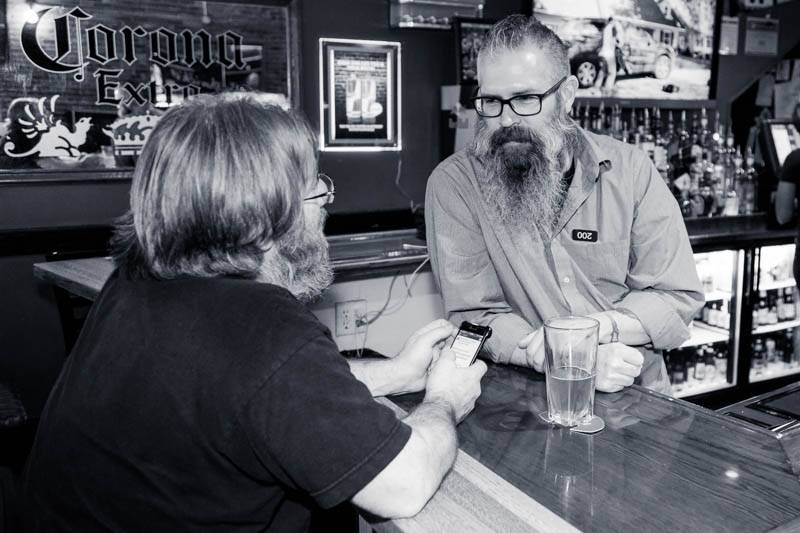
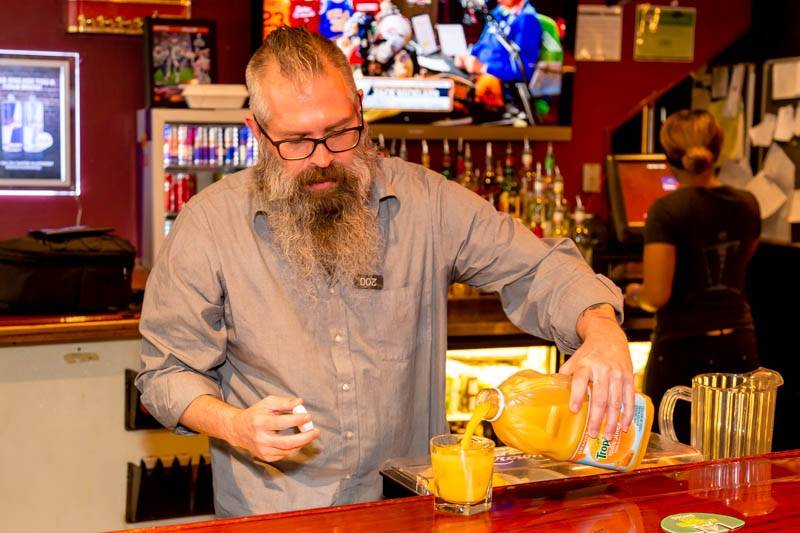
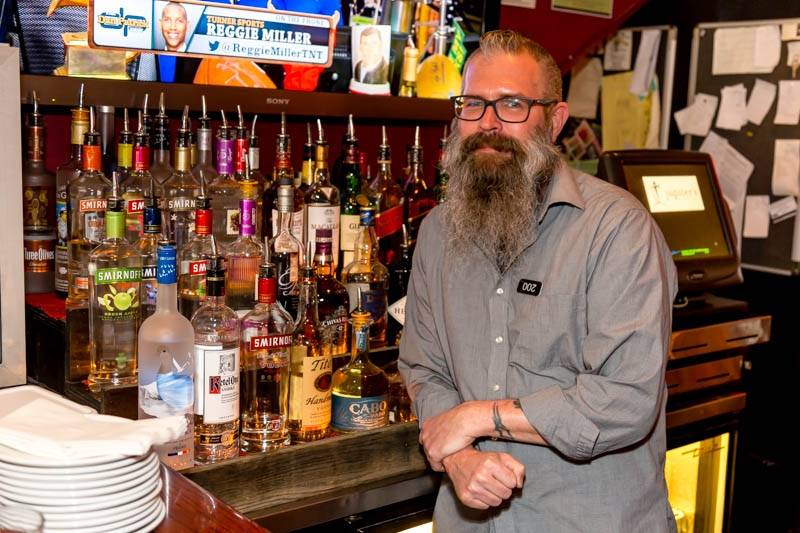
Timing is sometimes difficult. The day job normally runs from 8-5, but with several of the things I do at Carle, it allows me a more flexible schedule, due to after-hours things and before-hours things. Since I’m bartending until later at night, when the others might already be in bed, I am more able to do things when the systems aren’t being used.
A couple of years ago, Carle introduced a program called AIDET, which stands for Acknowledge, Introduce, Duration, Explanation, and Thank You. As I was going through the training, I really couldn’t see how I could use it on a daily basis at the day job. There would be times when I could, but not very much. It dawned on me, that it is a great way to introduce yourself while working behind the bar. From working behind a bar and at beer class, I’ve become a lot more patient at the day job. From being in the army a long time ago, I’m more willing to do unglamorous tasks, like sweeping and mopping, and washing glasses, than some others might be.
Taking a week off means I have to schedule it with four separate bosses, which can lead to a headache. Did I get Tuesday covered? I’m pretty sure this is my off weekend from Triptych? Hey, do you remember when you said you’d work for me?
SP: Some people have a difficult time finding one job, let alone four. What do you do to make yourself marketable? What advice would you give someone struggling to find or maintain work?
Grider: If I have the time available, I can work. The main reason I have three part time jobs and not just one is that there is not one individual other place that can use me for the hours that I have available. Jupiter’s doesn’t need me every night from 5-9. Barrelhouse doesn’t need a bartender who always takes the early cut. I could probably work the night shift at Triptych all the time, but then they would just have to have a person hired who never worked until I was sick or wanted to take a day off. So, I work at several places, because I’m someone who can work, who doesn’t want or need 40 hours a week. If I wanted to work more at the bars, I’m sure they would find hours for me.
As to finding work, the best way to do it, is to become an expert at something. Be the best at something. I tend to think I’ve cornered the market in town with beer. Seven Saints owns whiskey here. Wedge is tequila. There are several beer bars. I don’t feel like there is a place or individual in town who is the go to for rum, gin, or vodka. If you want to own something that no one else does, you can learn one of those things.
People ask me “who’s hiring?” My response is “everyone is always hiring.” If you have the skills, knowledge, and ability; you can make it so a company can’t afford to not hire you. If you just want a job and don’t own that thing, you won’t get hired. If you are the best at something, employers will come looking for you. Be the best at something. Learn it so well, that they come looking for you. Don’t ask for a job, demand that you be hired.
SP: On the other hand, you have a lot of experience with employers. What makes a good employer in your opinion?
Grider: The main thing I need from an employer is flexibility. At Carle, my direct leadership allows me the flexibility to do all the other things, while still getting the job done. Since I enjoy what I do, the other jobs are kind of a hobby, I just happen to make some pretty good side money at my hobby. Other guys I work with might coach little league, or be on a bowling league, or play softball as a hobby; my side hobby is slinging drinks.
As a bartender, the best employers are the ones who trust that what I’m doing is in the best interest of making them money. From the clothes that I wear, to how I interact with customers, to the drinks that I recommend, to the music that I’m playing, it’s all to make them and me money.
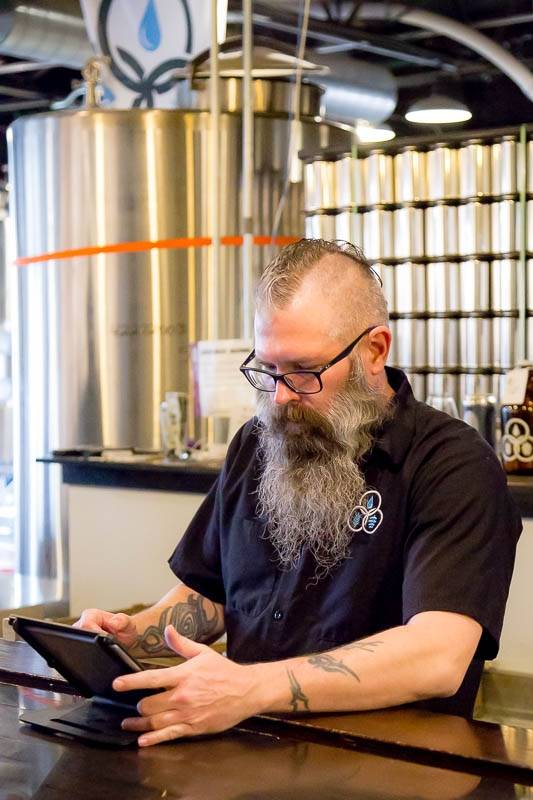
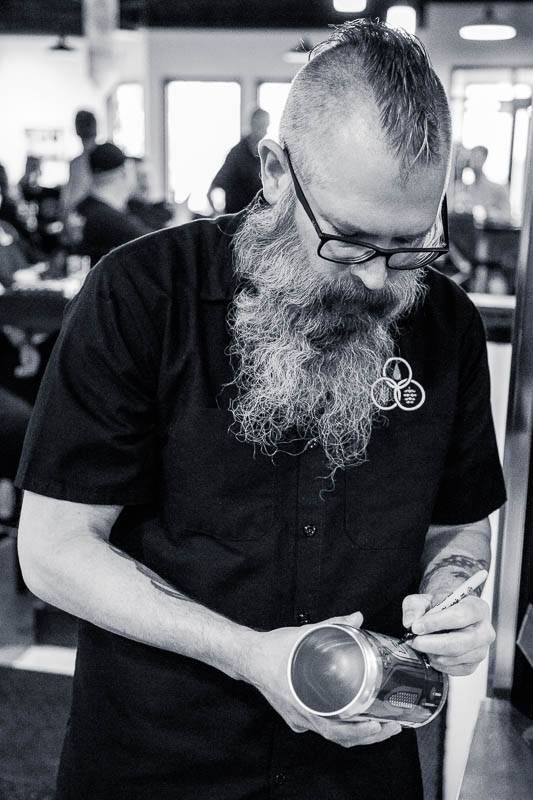
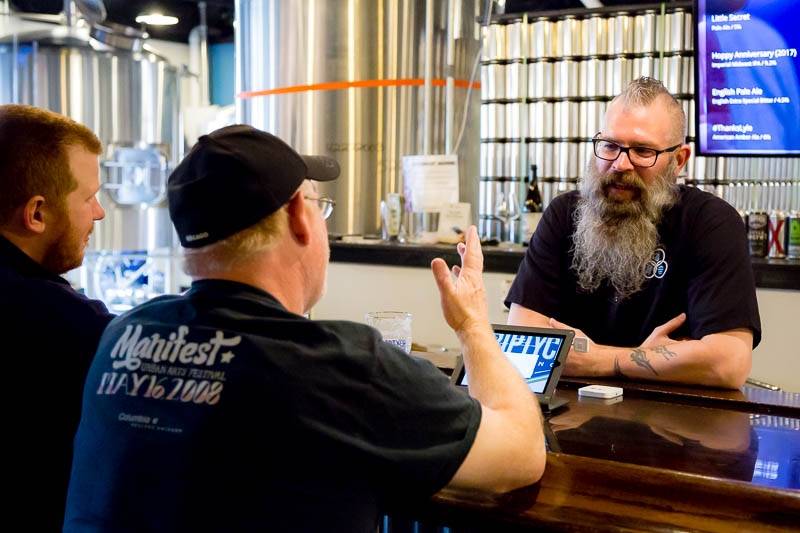
SP: What do you think of the work climate here in C-U compared to other places in the country? Do you plan to work here always or move somewhere else because of the Illinois economy?
Grider: At Carle, the best way to see how the economy is going, is to look out the window at the patient parking lots. If those are full, I will continue to have a job. I worked at the bars during the last recession, and there was a noticeable dip in a number of customers at the bar. It was easy to tell when the economy started to turn around as there were newer faces showing up to drink. They say alcohol is recession proof, and that’s pretty much true, you will always be able to sell drinks, but during the recession, more people weren’t going out, they would drink at home. I was still making money, but it’s definitely improved since then.
I love this town. Downtown Champaign is seriously one of the best places in the world. There is almost anything you could want to be located in less than a 1-mile radius. If you extend it to 5 miles, you’ve got practically everything. You want live music? We got it. You want a local brew? We’ve got that. You want fancy food? Got an abundance of that now (way more than 6 years ago). You want fancy cocktails, got that too. You want pizza, well, how do you want your pizza? You want to do a little pub crawl on Friday or Saturday night, just find me, and we’ll walk around town. There’s so much here, I just love this place. I can’t picture myself being anywhere else. Some people have a need to make it elsewhere. I don’t have that desire. I love what I do here too much.
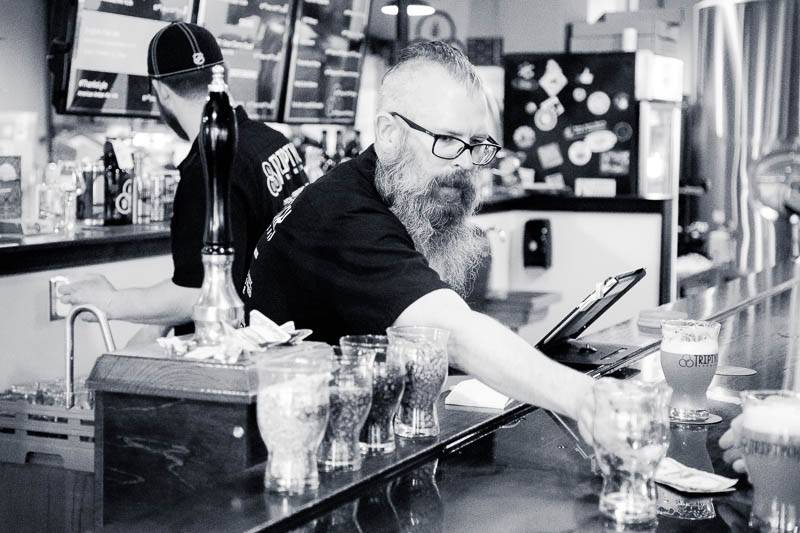
All photos by Scott Wells. Check out more of his work or contact him on Facebook.








